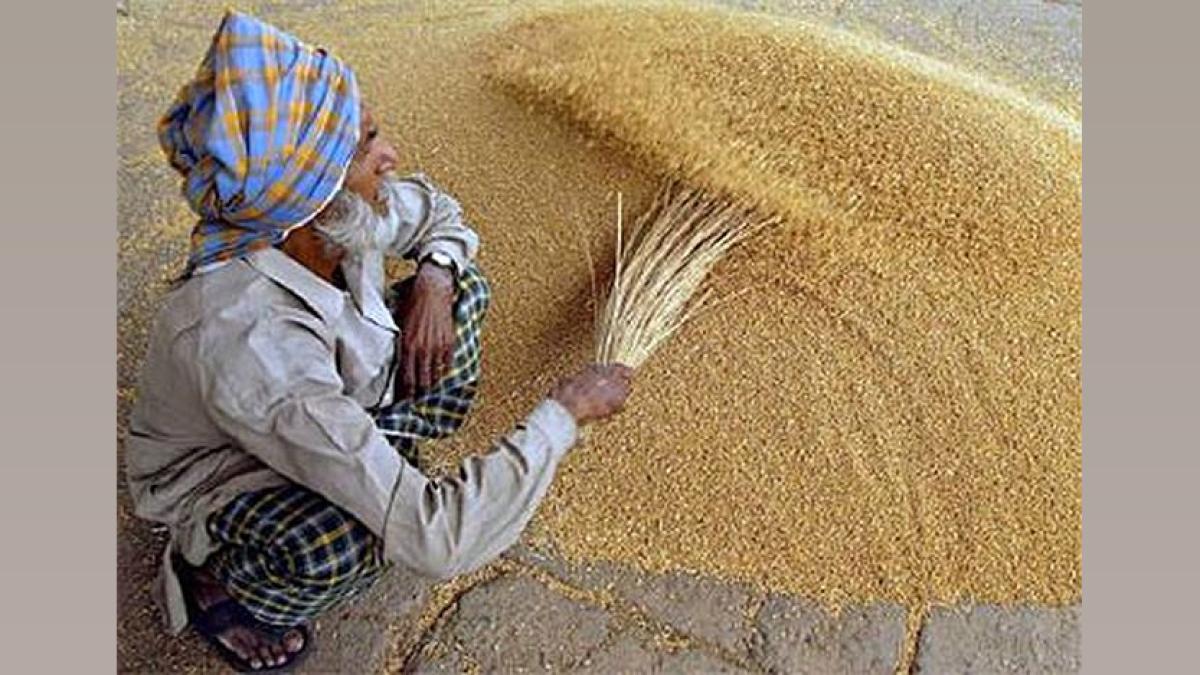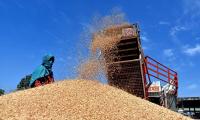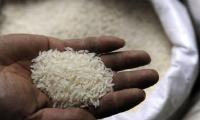Wheat Stock Limits Tightened: Govt Curbs Hoarding, Checks Prices
India's government has further reduced stock limits on wheat for wholesalers, retailers, and processors to curb hoarding and control rising prices. The new limits are effective immediately.

New Delhi, Dec 8 (PTI) The government on Friday further tightened stock holding norms for wholesalers, retailers, big chain retailers and processors with immediate effect in order to curb hoarding and to check price rise.
Briefing media, Food Secretary Sanjeev Chopra said the stock limit has been reduced to 1,000 tonnes from the existing 2,000 tonnes for traders/wholesalers.
The stock limit will be 5 tonnes instead of 10 tonnes on each retailer, 5 tonnes for each depot of a big chain retailer and a total of 1,000 tonnes for all their depots, he said.
In case of processors, they can hold 70 per cent of monthly installed capacity multiplied by the remaining months of 2023-24, he added.
"This has been done to prevent artificial scarcity and curb hoarding. The revised stock limits will be applicable from immediate effect," Chopra said.
The traders will get 30 days time to reduce the stock to the revised limits, he added.
All wheat stocking entities are required to register on the wheat stock limit portal (https://evegoils.nic.in/wsp/login) and update the stock position every Friday, an official statement said.
Any entity which is found to have not registered on the portal or violates the stock limits will be subject to suitable punitive action under Section 6 and 7 of the Essential Commodities Act, 1955.
It was on June 12, the Food Ministry had imposed stock holding limits on different kinds of traders till March 2024.
Initially, the stock limit of 3,000 tonnes was imposed on traders and wholesalers, 10 tonnes on retailers, and 10 tonnes for each outlet of big chain retailers and 3,000 tonnes at all their depots. In the case of processors, 75 per cent of annual installed capacity.
Subsequently, the stock limit was further reduced on September 14, to 2,000 tonnes each for traders/wholesalers, and also for big chain retailers at all their depots.
Besides stock limits, the government has taken various steps to ensure domestic availability and check price rise.
There is ban on wheat export since May 2022, offloading wheat at subsidised rate to bulk users under the open market sale scheme.
Briefing media, Food Secretary Sanjeev Chopra said the stock limit has been reduced to 1,000 tonnes from the existing 2,000 tonnes for traders/wholesalers.
The stock limit will be 5 tonnes instead of 10 tonnes on each retailer, 5 tonnes for each depot of a big chain retailer and a total of 1,000 tonnes for all their depots, he said.
In case of processors, they can hold 70 per cent of monthly installed capacity multiplied by the remaining months of 2023-24, he added.
"This has been done to prevent artificial scarcity and curb hoarding. The revised stock limits will be applicable from immediate effect," Chopra said.
The traders will get 30 days time to reduce the stock to the revised limits, he added.
All wheat stocking entities are required to register on the wheat stock limit portal (https://evegoils.nic.in/wsp/login) and update the stock position every Friday, an official statement said.
Any entity which is found to have not registered on the portal or violates the stock limits will be subject to suitable punitive action under Section 6 and 7 of the Essential Commodities Act, 1955.
It was on June 12, the Food Ministry had imposed stock holding limits on different kinds of traders till March 2024.
Initially, the stock limit of 3,000 tonnes was imposed on traders and wholesalers, 10 tonnes on retailers, and 10 tonnes for each outlet of big chain retailers and 3,000 tonnes at all their depots. In the case of processors, 75 per cent of annual installed capacity.
Subsequently, the stock limit was further reduced on September 14, to 2,000 tonnes each for traders/wholesalers, and also for big chain retailers at all their depots.
Besides stock limits, the government has taken various steps to ensure domestic availability and check price rise.
There is ban on wheat export since May 2022, offloading wheat at subsidised rate to bulk users under the open market sale scheme.
You May Like To Read
TODAY'S MOST TRADED COMPANIES
- Company Name
- Price
- Volume
- Vodafone-Idea-L
- 11.65 (+ 3.56)
- 106772451
- Alstone-Textiles
- 0.28 ( -3.45)
- 44187760
- Mangalam-Industrial
- 0.88 ( -2.22)
- 39177573
- Sunshine-Capital
- 0.27 (+ 3.85)
- 35956340
- GMR-Airports
- 104.40 (+ 6.37)
- 30453005





